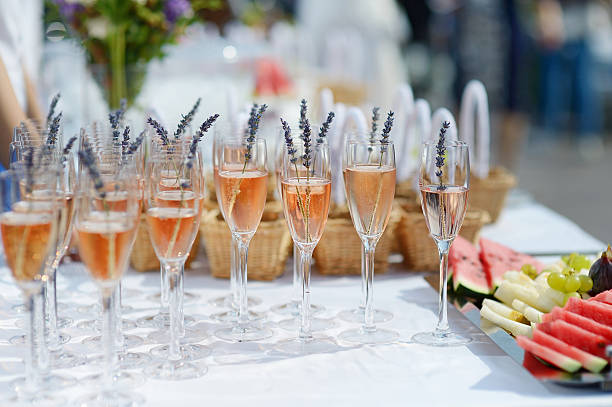Exploring the World of Luxury Items: An Unparalleled Experience
Luxury items have long been a symbol of wealth, sophistication, and exclusivity. They represent more than just material possessions; they embody a lifestyle and a sense of prestige. In a world where opulence is often a reflection of personal success and refined taste, luxury items serve as a testament to one's appreciation for the finer things in life.
The Essence of Luxury
At its core, luxury is about transcending the ordinary. It involves a meticulous attention to detail, the finest materials, and craftsmanship that goes beyond mere functionality. Luxury items are not just purchased; they are experienced. Whether it's a handcrafted watch, a bespoke suit, or a rare bottle of vintage wine, each piece tells a story of artistry and exclusivity.
Luxury items often feature unique attributes that set them apart from their more commonplace counterparts. These may include rare materials, exceptional craftsmanship, and limited availability. The allure of luxury lies in its scarcity and the promise of an experience that cannot be easily replicated.
Historical Perspectives on Luxury
The concept of luxury has evolved over time, but its essence has remained remarkably consistent. In ancient civilizations, luxury items were often reserved for royalty and the elite. From ornate jewelry in Egypt to lavish silk garments in China, luxury was a marker of social status and power.
During the Renaissance, luxury began to take on new forms, with an emphasis on art, architecture, and fine living. This period saw the rise of opulent palaces and grandiose works of art, reflecting a growing appreciation for aesthetics and craftsmanship. The pursuit of luxury was not only about material wealth but also about the cultivation of culture and refinement.
In the modern era, the definition of luxury has expanded to include a broader range of products and experiences. While the traditional markers of wealth such as high-end automobiles and exclusive real estate remain significant, there is now a growing emphasis on personalized and bespoke items. Luxury is increasingly about creating unique and memorable experiences that cater to individual tastes and preferences.
The Craftsmanship Behind Luxury
One of the defining features of luxury items is the exceptional craftsmanship that goes into their creation. Skilled artisans and craftsmen often spend years perfecting their techniques to produce items that are not only functional but also aesthetically pleasing. This level of dedication and expertise is what distinguishes luxury items from mass-produced goods.
For instance, a luxury watch is not just a timekeeping device; it is a masterpiece of engineering and design. The intricate movements and precise mechanics are the result of hours of meticulous work by master watchmakers. Each component is carefully crafted and assembled to ensure that the final product meets the highest standards of quality.
Similarly, luxury fashion items often involve intricate hand-stitching, bespoke tailoring, and the use of premium materials. The attention to detail is what makes these garments stand out and ensures that they fit perfectly and look impeccable.
Luxury and Technology
In recent years, technology has played a significant role in the evolution of luxury items. High-end electronics and gadgets now offer cutting-edge features and unparalleled performance. From state-of-the-art home entertainment systems to advanced wearable technology, luxury consumers are increasingly seeking items that combine innovation with elegance.
Luxury tech products often incorporate the latest advancements in technology while maintaining a focus on design and aesthetics. This fusion of form and function is what makes these items highly desirable. For example, luxury smartphones not only offer superior performance but also feature exquisite materials and finishes that elevate their status as a luxury item.
The Role of Personalization in Luxury
Personalization is another key aspect of luxury items. In a world where individuality is highly valued, luxury consumers are increasingly looking for products that reflect their personal tastes and preferences. Customization options allow consumers to create one-of-a-kind items that are tailored to their specific needs and desires.
From bespoke clothing to personalized jewelry, the ability to customize luxury items adds an extra layer of exclusivity. This personalization extends beyond mere aesthetics; it also encompasses functionality and usability. For example, a custom-tailored suit not only fits perfectly but also aligns with the wearer’s unique style and preferences.
Sustainability and Ethical Considerations
As the luxury market continues to grow, there is an increasing emphasis on sustainability and ethical considerations. Consumers are becoming more conscious of the environmental and social impact of their purchases. Luxury brands are responding to this shift by adopting more sustainable practices and focusing on ethical sourcing of materials.
Luxury items that are crafted from sustainable materials or produced using eco-friendly methods are becoming more popular. This shift reflects a broader trend towards responsible consumption and a desire to support brands that align with one's values. By investing in luxury items that prioritize sustainability, consumers can enjoy the finer things in life while also contributing to a positive impact on the world.
The Future of Luxury
Looking ahead, the future of luxury is likely to be shaped by ongoing trends and innovations. As technology continues to advance, we can expect to see new and exciting developments in the luxury sector. Virtual reality, for example, is set to revolutionize the way consumers experience luxury items, offering immersive and interactive experiences that enhance the allure of high-end products.
Additionally, the increasing emphasis on personalization and customization will continue to drive demand for unique and bespoke luxury items. Consumers will increasingly seek out products that reflect their individual tastes and preferences, and brands will need to adapt to meet these evolving needs.
The future of luxury will also be influenced by broader societal changes, including shifts in consumer values and preferences. As sustainability and ethical considerations become more central to the luxury market, brands will need to balance exclusivity with a commitment to responsible practices.
Conclusion
Luxury items represent more than just high-end goods; they are symbols of craftsmanship, exclusivity, and personal success. From the intricate artistry of a bespoke watch to the cutting-edge technology of a luxury gadget, these items embody a commitment to quality and a dedication to creating exceptional experiences. As the luxury market continues to evolve, it will be shaped by trends in technology, personalization, and sustainability, offering consumers new and exciting ways to indulge in the finer things in life.
Luxury items have long been a symbol of wealth, sophistication, and exclusivity. They represent more than just material possessions; they embody a lifestyle and a sense of prestige. In a world where opulence is often a reflection of personal success and refined taste, luxury items serve as a testament to one's appreciation for the finer things in life.
The Essence of Luxury
At its core, luxury is about transcending the ordinary. It involves a meticulous attention to detail, the finest materials, and craftsmanship that goes beyond mere functionality. Luxury items are not just purchased; they are experienced. Whether it's a handcrafted watch, a bespoke suit, or a rare bottle of vintage wine, each piece tells a story of artistry and exclusivity.
Luxury items often feature unique attributes that set them apart from their more commonplace counterparts. These may include rare materials, exceptional craftsmanship, and limited availability. The allure of luxury lies in its scarcity and the promise of an experience that cannot be easily replicated.
Historical Perspectives on Luxury
The concept of luxury has evolved over time, but its essence has remained remarkably consistent. In ancient civilizations, luxury items were often reserved for royalty and the elite. From ornate jewelry in Egypt to lavish silk garments in China, luxury was a marker of social status and power.
During the Renaissance, luxury began to take on new forms, with an emphasis on art, architecture, and fine living. This period saw the rise of opulent palaces and grandiose works of art, reflecting a growing appreciation for aesthetics and craftsmanship. The pursuit of luxury was not only about material wealth but also about the cultivation of culture and refinement.
In the modern era, the definition of luxury has expanded to include a broader range of products and experiences. While the traditional markers of wealth such as high-end automobiles and exclusive real estate remain significant, there is now a growing emphasis on personalized and bespoke items. Luxury is increasingly about creating unique and memorable experiences that cater to individual tastes and preferences.
The Craftsmanship Behind Luxury
One of the defining features of luxury items is the exceptional craftsmanship that goes into their creation. Skilled artisans and craftsmen often spend years perfecting their techniques to produce items that are not only functional but also aesthetically pleasing. This level of dedication and expertise is what distinguishes luxury items from mass-produced goods.
For instance, a luxury watch is not just a timekeeping device; it is a masterpiece of engineering and design. The intricate movements and precise mechanics are the result of hours of meticulous work by master watchmakers. Each component is carefully crafted and assembled to ensure that the final product meets the highest standards of quality.
Similarly, luxury fashion items often involve intricate hand-stitching, bespoke tailoring, and the use of premium materials. The attention to detail is what makes these garments stand out and ensures that they fit perfectly and look impeccable.
Luxury and Technology
In recent years, technology has played a significant role in the evolution of luxury items. High-end electronics and gadgets now offer cutting-edge features and unparalleled performance. From state-of-the-art home entertainment systems to advanced wearable technology, luxury consumers are increasingly seeking items that combine innovation with elegance.
Luxury tech products often incorporate the latest advancements in technology while maintaining a focus on design and aesthetics. This fusion of form and function is what makes these items highly desirable. For example, luxury smartphones not only offer superior performance but also feature exquisite materials and finishes that elevate their status as a luxury item.
The Role of Personalization in Luxury
Personalization is another key aspect of luxury items. In a world where individuality is highly valued, luxury consumers are increasingly looking for products that reflect their personal tastes and preferences. Customization options allow consumers to create one-of-a-kind items that are tailored to their specific needs and desires.
From bespoke clothing to personalized jewelry, the ability to customize luxury items adds an extra layer of exclusivity. This personalization extends beyond mere aesthetics; it also encompasses functionality and usability. For example, a custom-tailored suit not only fits perfectly but also aligns with the wearer’s unique style and preferences.
Sustainability and Ethical Considerations
As the luxury market continues to grow, there is an increasing emphasis on sustainability and ethical considerations. Consumers are becoming more conscious of the environmental and social impact of their purchases. Luxury brands are responding to this shift by adopting more sustainable practices and focusing on ethical sourcing of materials.
Luxury items that are crafted from sustainable materials or produced using eco-friendly methods are becoming more popular. This shift reflects a broader trend towards responsible consumption and a desire to support brands that align with one's values. By investing in luxury items that prioritize sustainability, consumers can enjoy the finer things in life while also contributing to a positive impact on the world.
The Future of Luxury
Looking ahead, the future of luxury is likely to be shaped by ongoing trends and innovations. As technology continues to advance, we can expect to see new and exciting developments in the luxury sector. Virtual reality, for example, is set to revolutionize the way consumers experience luxury items, offering immersive and interactive experiences that enhance the allure of high-end products.
Additionally, the increasing emphasis on personalization and customization will continue to drive demand for unique and bespoke luxury items. Consumers will increasingly seek out products that reflect their individual tastes and preferences, and brands will need to adapt to meet these evolving needs.
The future of luxury will also be influenced by broader societal changes, including shifts in consumer values and preferences. As sustainability and ethical considerations become more central to the luxury market, brands will need to balance exclusivity with a commitment to responsible practices.
Conclusion
Luxury items represent more than just high-end goods; they are symbols of craftsmanship, exclusivity, and personal success. From the intricate artistry of a bespoke watch to the cutting-edge technology of a luxury gadget, these items embody a commitment to quality and a dedication to creating exceptional experiences. As the luxury market continues to evolve, it will be shaped by trends in technology, personalization, and sustainability, offering consumers new and exciting ways to indulge in the finer things in life.
.jpg)



